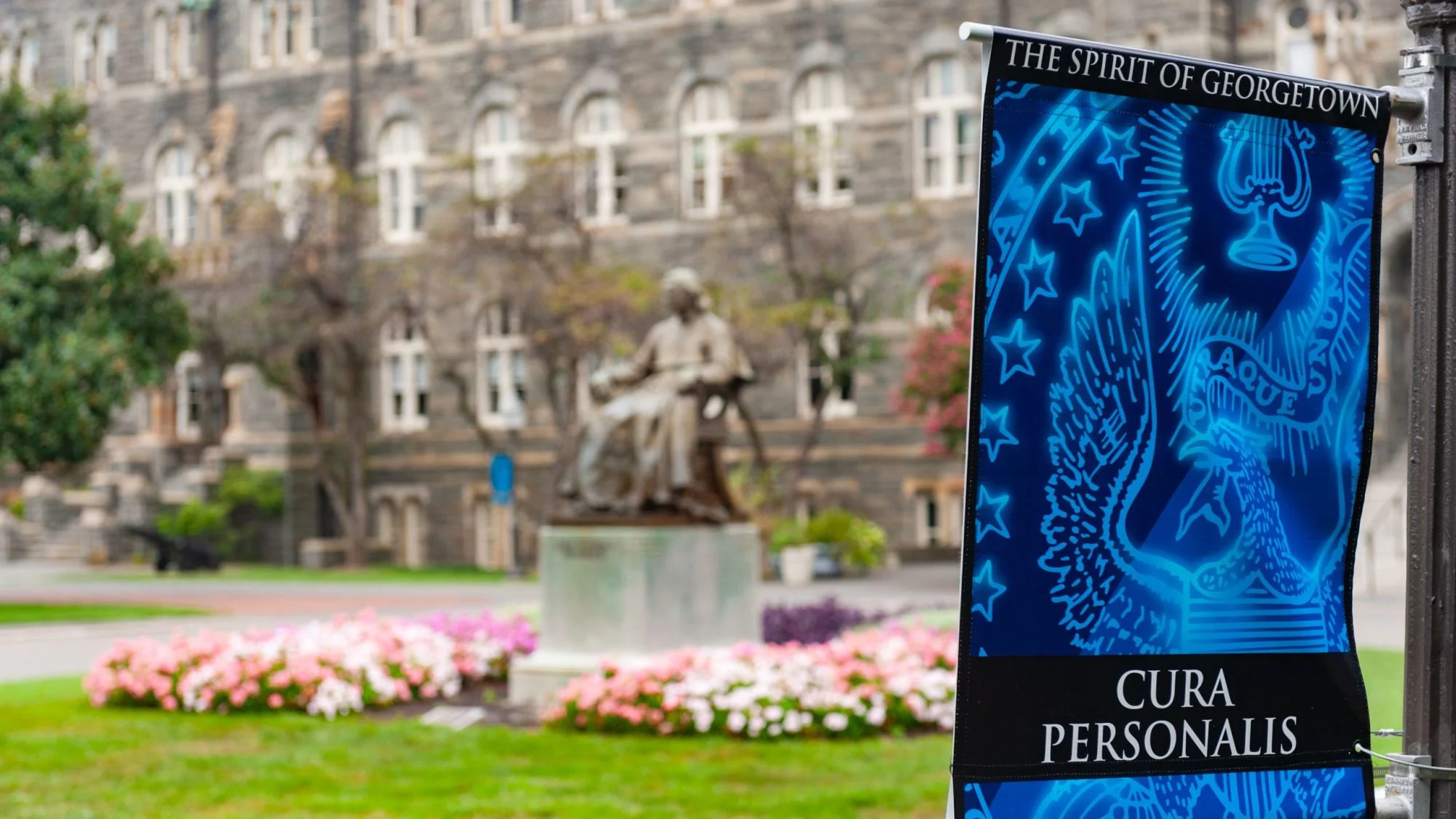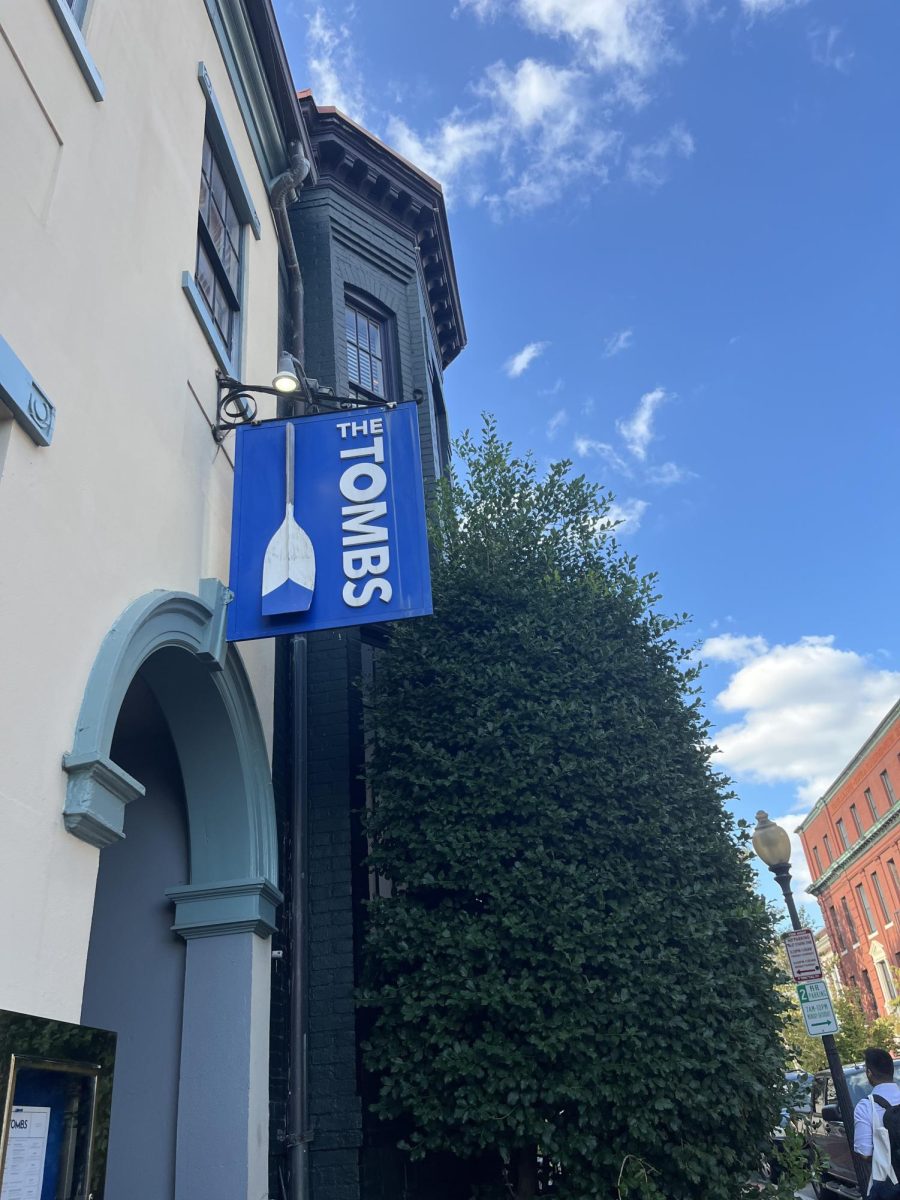Days after the constitutional council of the Georgetown University Student Association (GUSA), Georgetown’s student government, reinstated a disqualified candidate, the GUSA Senate certified the results of the senate election at its meeting April 27.
The GUSA election commission, the appointed body which administers GUSA elections, originally challenged the results of the election to disqualify candidate Erik Hsu (CAS ’28) on account of bribery and excess campaigning charges. The GUSA constitutional council, which decides disputes over applications of the bylaws and constitution, reversed the disqualification, resulting in the confirmation of Hsu in place of Luke Schneeman (CAS ’28), who the election commission previously announced as a senator-elect April 16.
Prior to voting, the senators had a period of questioning on the rulings of the elections commission and constitutional council, accusing individuals of conflicts of interests and criticizing the review processes of both bodies.
Rai Hasen Masoud (SFS ’27), an election commissioner, said the commission initially disqualified Hsu based on claims brought by another candidate that he bribed students with donut holes to court votes and exceeded the campaign spending limit.
“The decision came out to be that, due to repetitive procedural violations of the bylaws, we came to this conclusion that this candidate should not qualify,” Masoud said at the meeting.

The constitutional council issued a decision on Hsu’s initial appeal the evening of April 23, before the senate meeting scheduled to certify the election results began. The election commission sent an email to Schneeman after the start of the meeting announcing he would no longer be sworn into a seat in the senate.
GUSA postponed the certification until the April 27 meeting, with senators voting to adjourn without voting on the election results.
Schneeman then appealed the constitutional council’s decision to reinstate Hsu, after which the constitutional council made a final decision affirming their decision to reinstate Hsu’s candidacy April 26.
Amanda Mitchell (SON ’26), a member of the constitutional council, said the council reexamined the allegations against Hsu when making their decision.
“The council determined that Erik did not engage in bribery under 16.07 as the distribution of donut holes was based solely on voter eligibility, the class year and not conditioned on voting behavior,” Mitchell said at the meeting.
“Additionally, the council found that Erik’s campaign expenditures were within the $50 limit,” Mitchell added. “The commission failed to properly account for Erik’s itemized receipts and reasonable explanations for printing costs.”
Article 16.07 of the GUSA bylaws bans candidates from engaging in bribery, defined as offering something of value in exchange for a vote. Article 16.02 mandates a $50 spending cap for all senatorial campaigns.
In a period of questioning following statements from the election commission and constitutional council, senators expressed concern about the commission’s review process, potential conflicts of interest with the constitutional council and targeting of individual GUSA members online.
Senator Tyler Chase (SFS ’28) said one of the issues with the reinstatement was that a constitutional council member, Michael Liu (MSB ’25), ruled on this issue after attempting a run for senate but was himself disqualified for insufficient petitions.
“I’m just wondering whether you thought that it was important that you stayed on the constitutional council given your clear interests in running for GUSA, and that just seems to be a conflict of interest to me,” Chase said at the meeting.
Senator Evan Cornell (CAS ’27), the outgoing chair of the Ethics and Oversight Committee, the senate committee which works with the election commission to disqualify candidates when necessary, said the senate should not target the council members unless there are genuine concerns about their ability to rule on the election case.
“I’m going to bring in real politics for a minute, but around this country judges are being arrested because this administration doesn’t agree with what they are doing,” Cornell said at the meeting. “I’m not saying that that’s what we’re doing here, but what I’m saying is we’re actively questioning this body for what reason?”
Senator Saahil Rao (SFS ’27) said the senate should further consider the missteps of the commission and council, as well as Hsu’s actions, by opening an impeachment inquiry after confirming Hsu, as the senate had similarly done in 2023.
“The decision that the senate made was to immediately open an impeachment inquiry to conduct a further and proper fact finding mission, because I think we can all agree that if bribery actually happened and that’s a disqualifiable event, that’s probably an impeachable offense,” Rao said at the meeting.
Senator Sam Lovell (CAS ’25) criticized anonymous posts made on the social media app Fizz, which alleged the GUSA executive had organized for Hsu to be sworn into the senate instead of Schneeman.
“We do ourselves a major disservice when not only is our campus against us in some respects, but then when we’re against ourselves,” Lovell said at the meeting. “Senators either sitting here in this room, or about to sit here in this room, participated in those discussions. Not only does it implicate your ability to serve the student body here, but it could implicate your position elsewhere in the university.”
After deliberating, the senate voted unanimously to certify the election results and swore in new senators to the body. The newly sworn-in senate then elected the leadership of the senate, including Speaker Rao, Vice Speaker Zadie Weaver (CAS ’28), Policy and Advocacy Committee Chair Cameran Lane (CAS ’28), Ethics and Oversight chair Nico Santiago (CAS ’27) and Financial Appropriations Chair Han Li (CAS ’27).
Rao said his speakership will focus on institutional reforms that ensure GUSA follows procedural requirements.
“I was originally just going to run for vice speaker, but the chaos and disorder of the last couple of weeks made me think it was important to offer a genuine alternative to this body,” Rao said at the meeting. “We’ve been roundly condemned for our rule-breaking from everyone from national media to Democratic members of Congress. That cannot happen again.”














